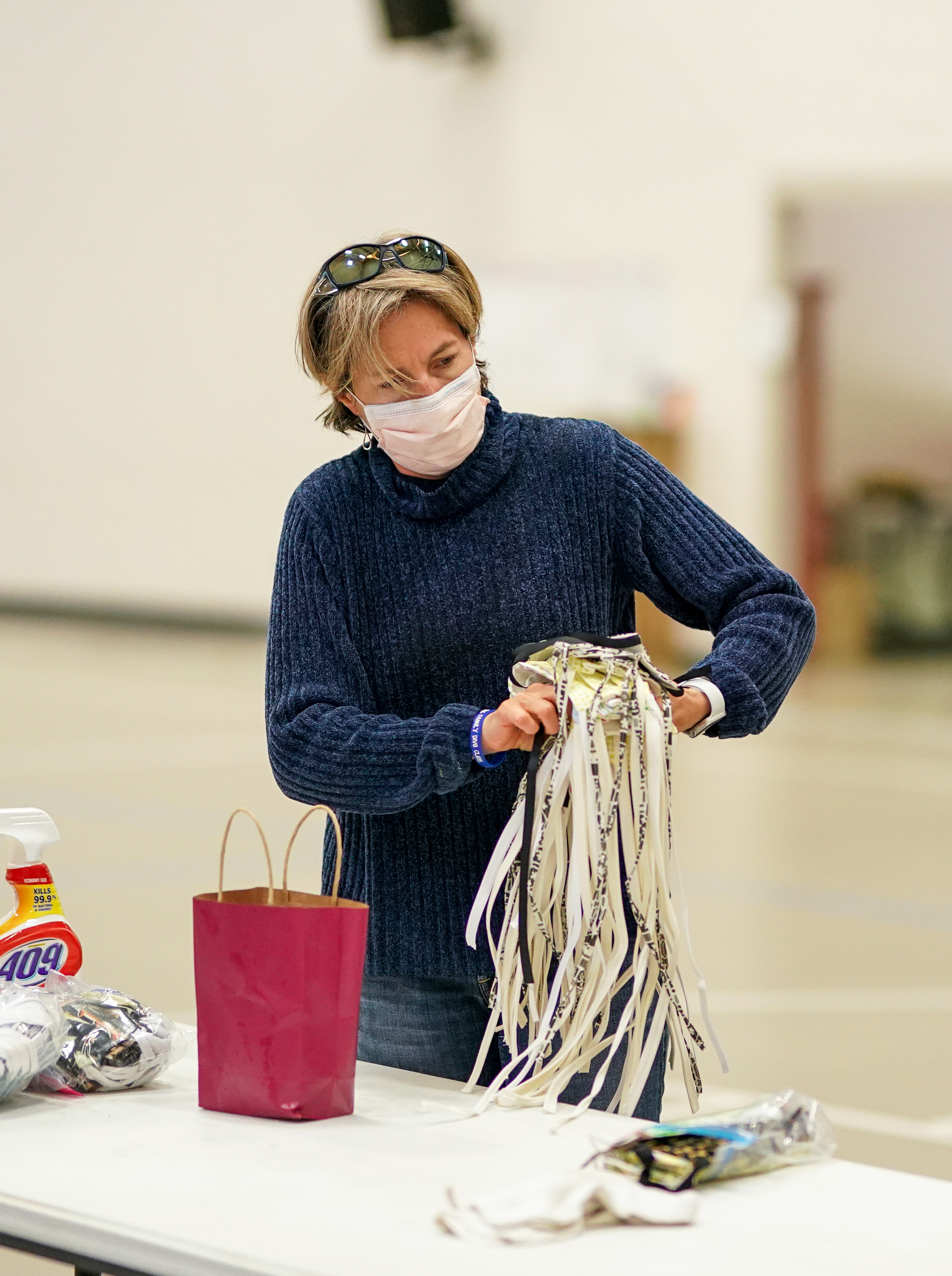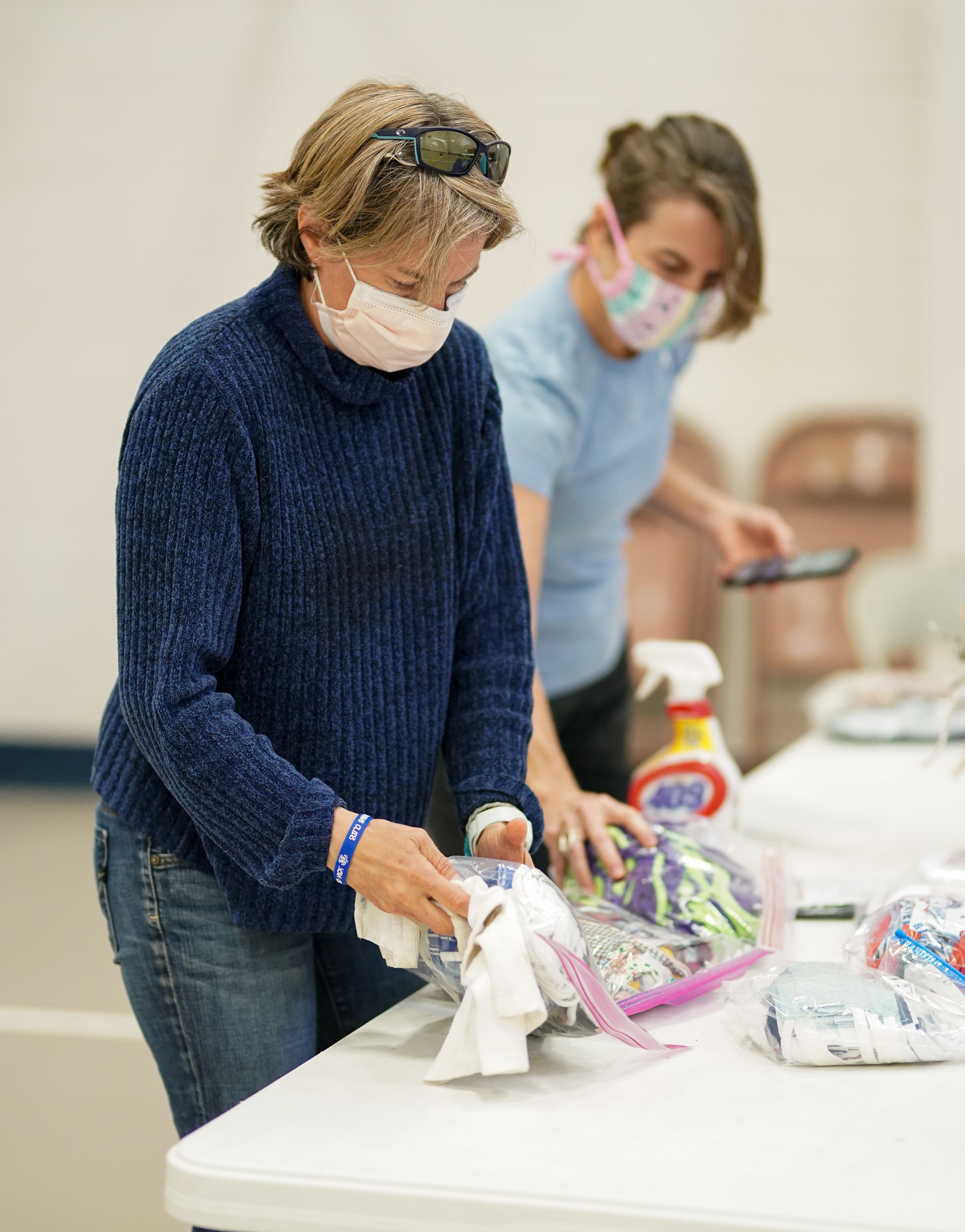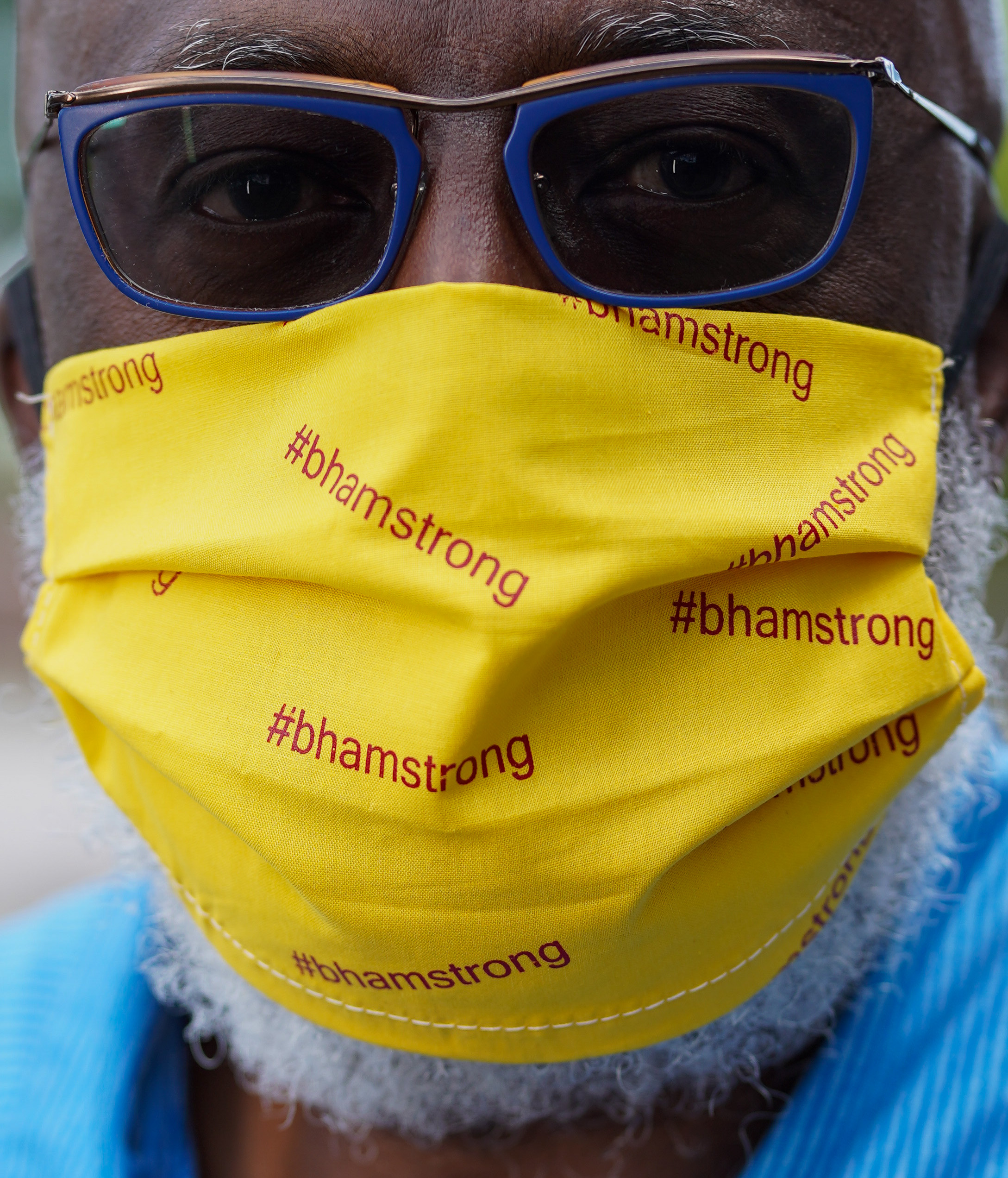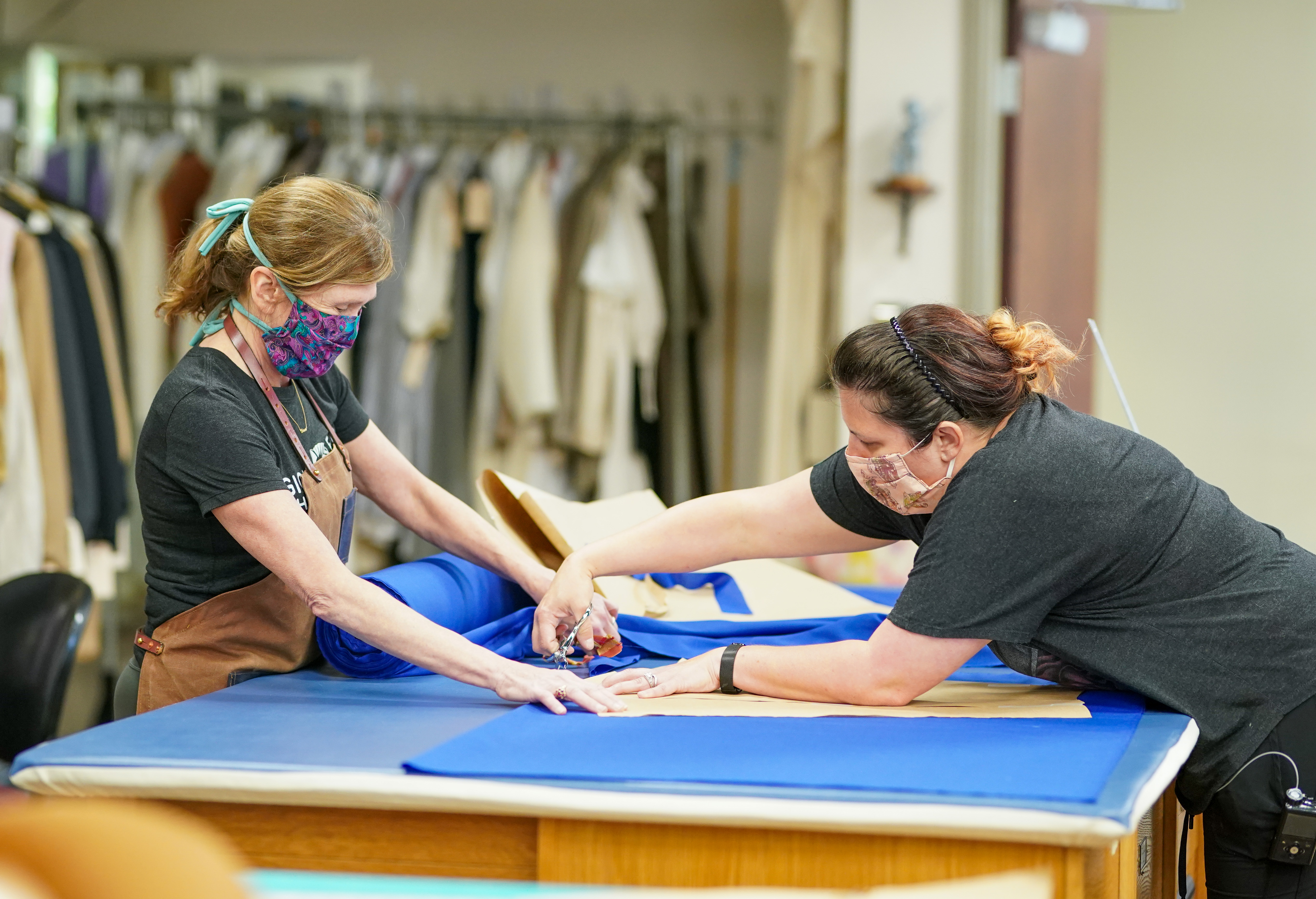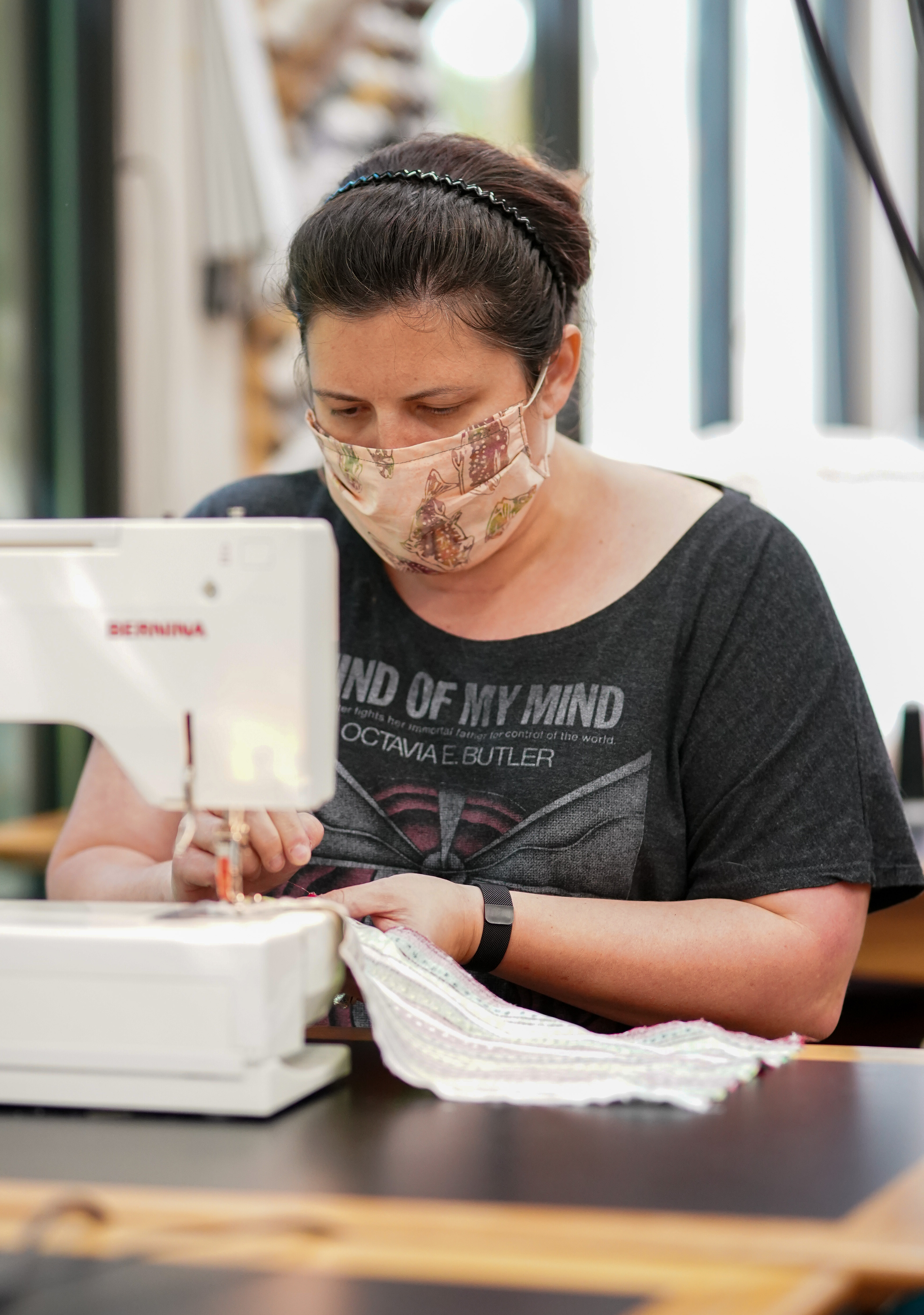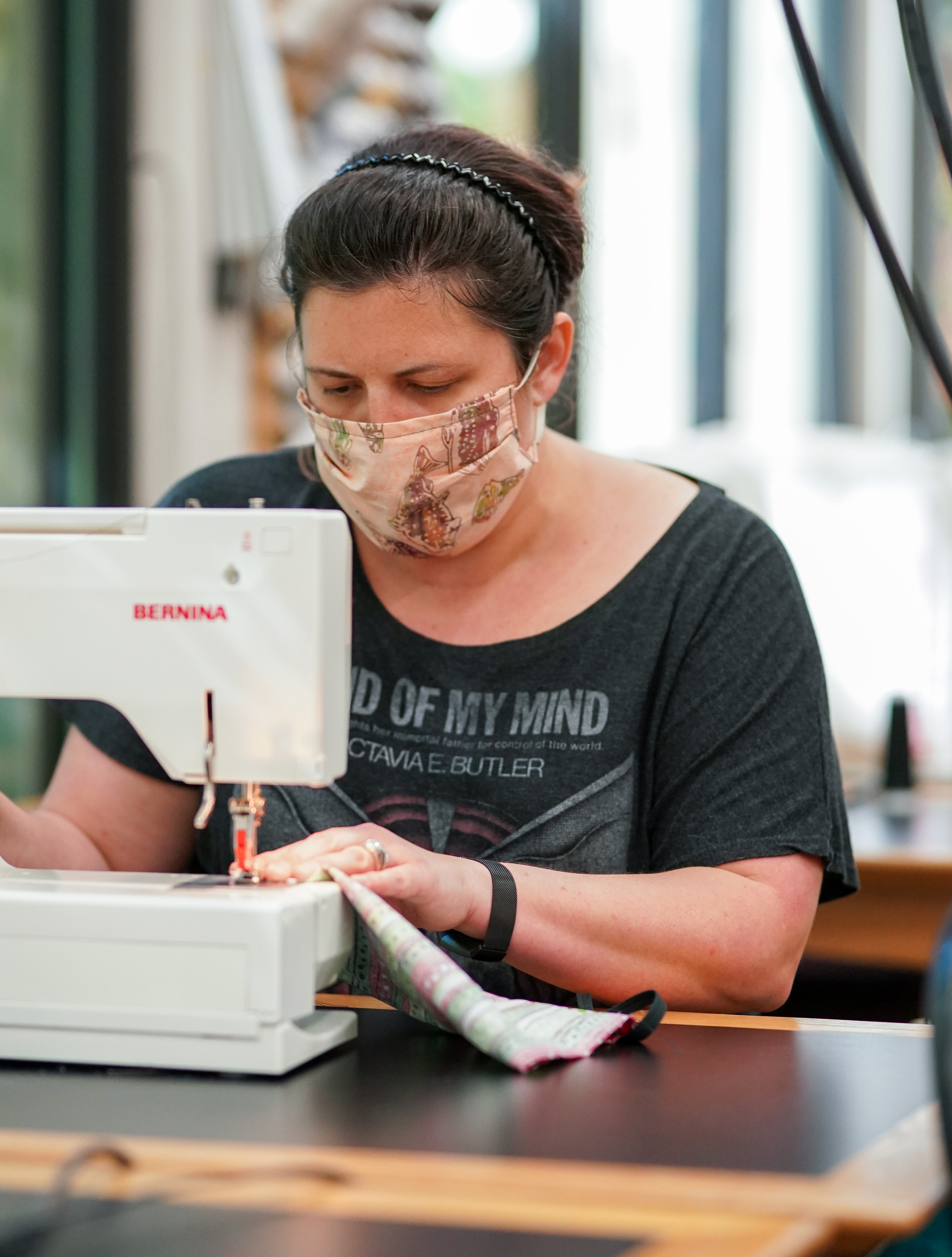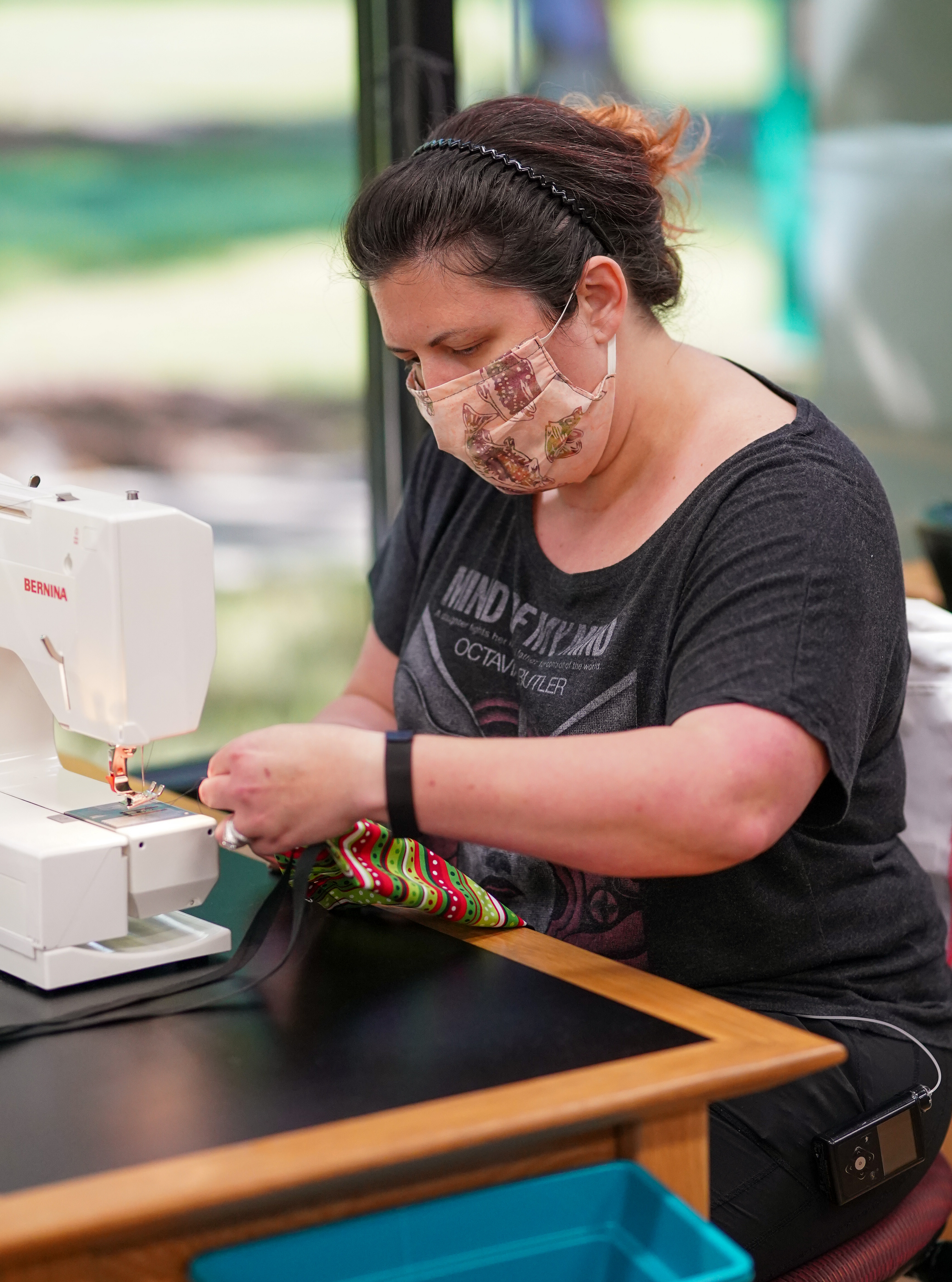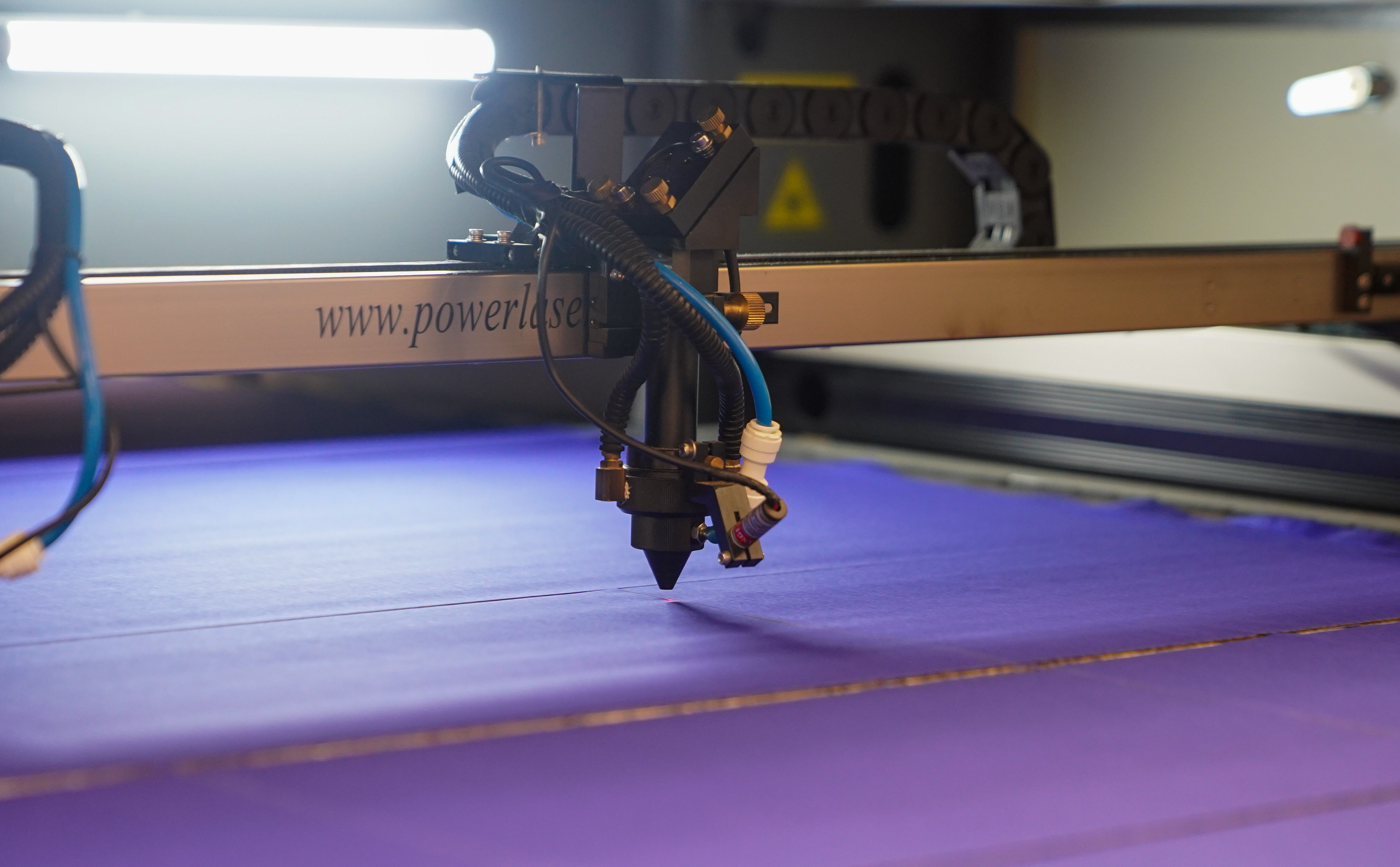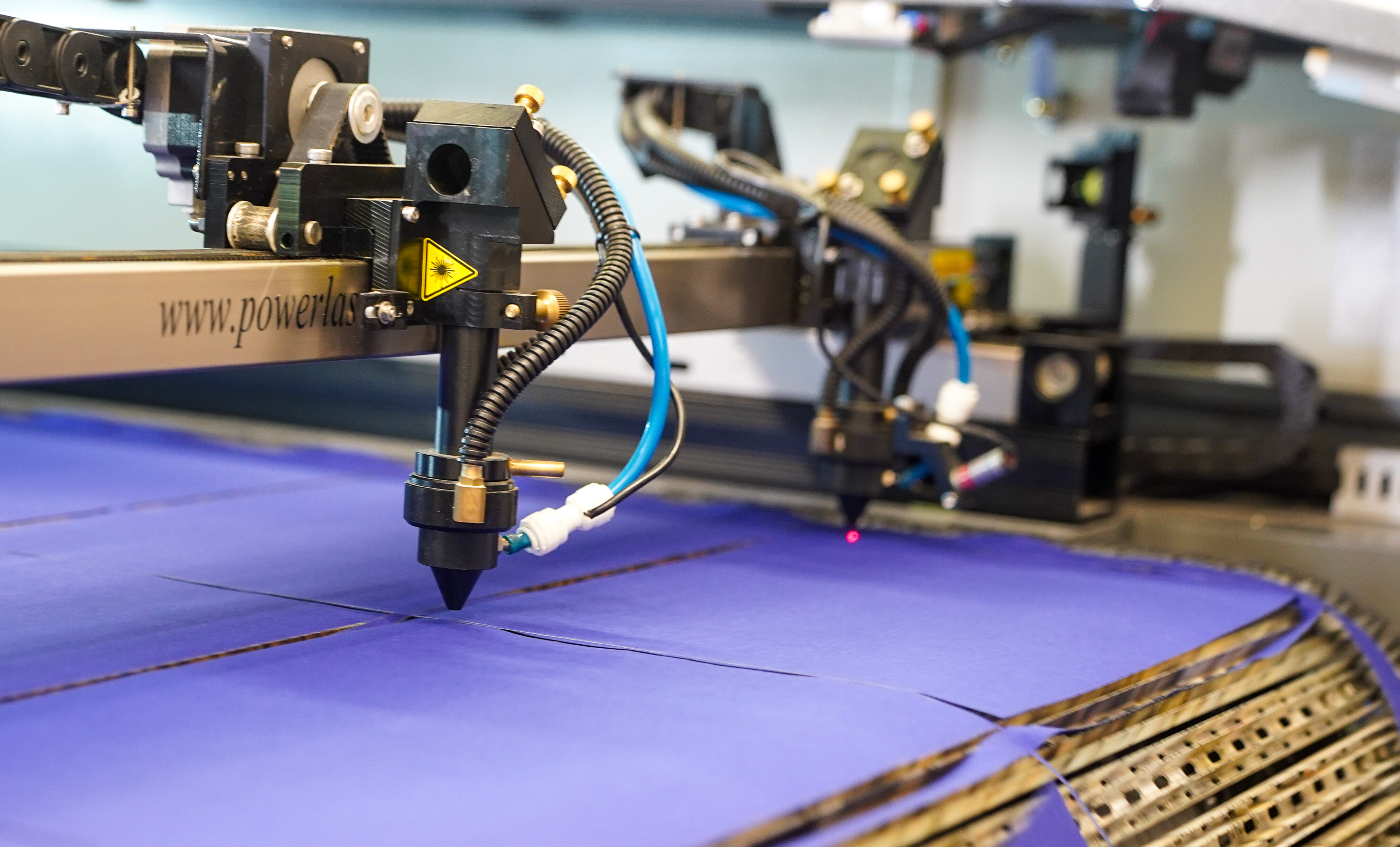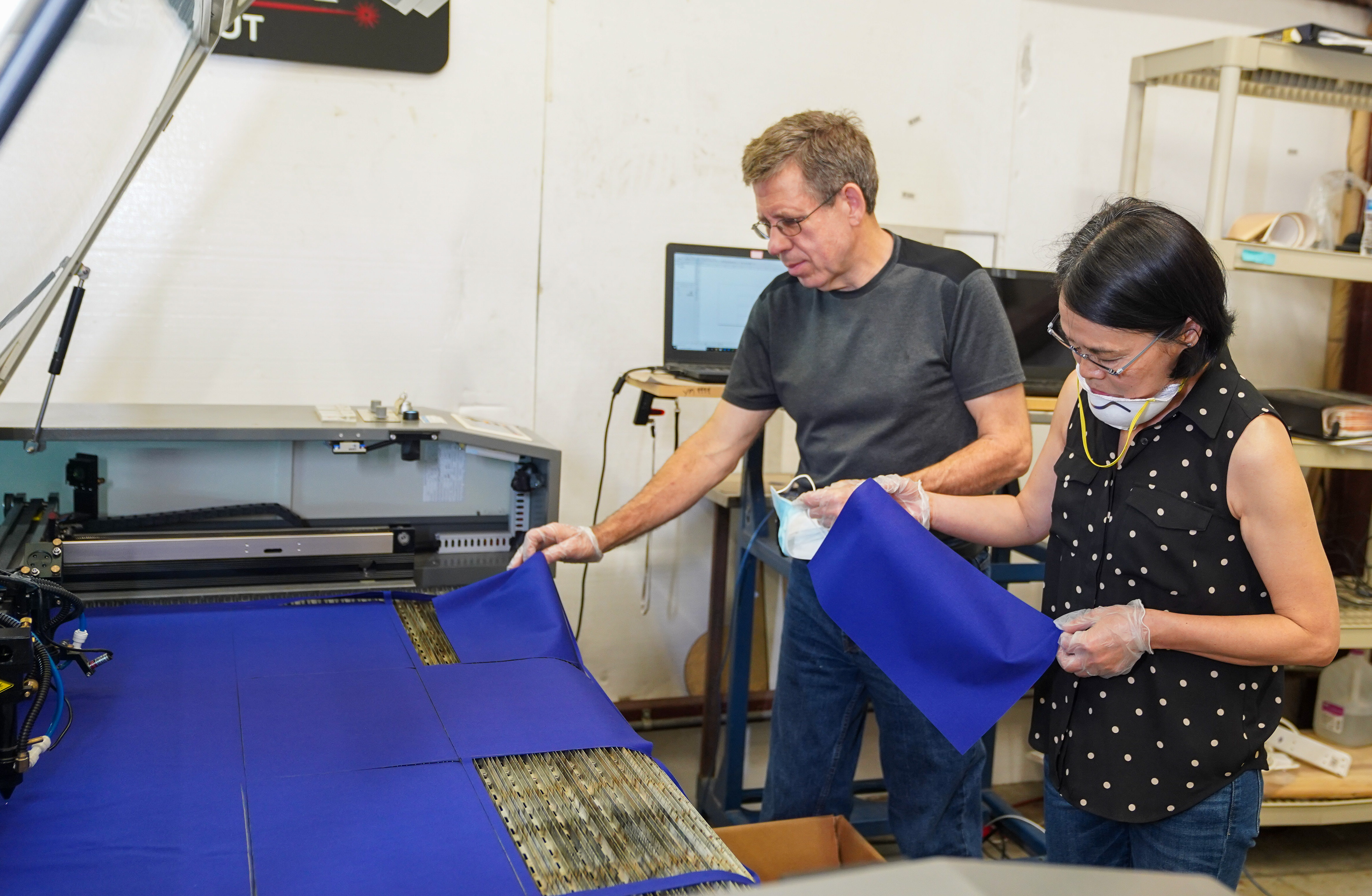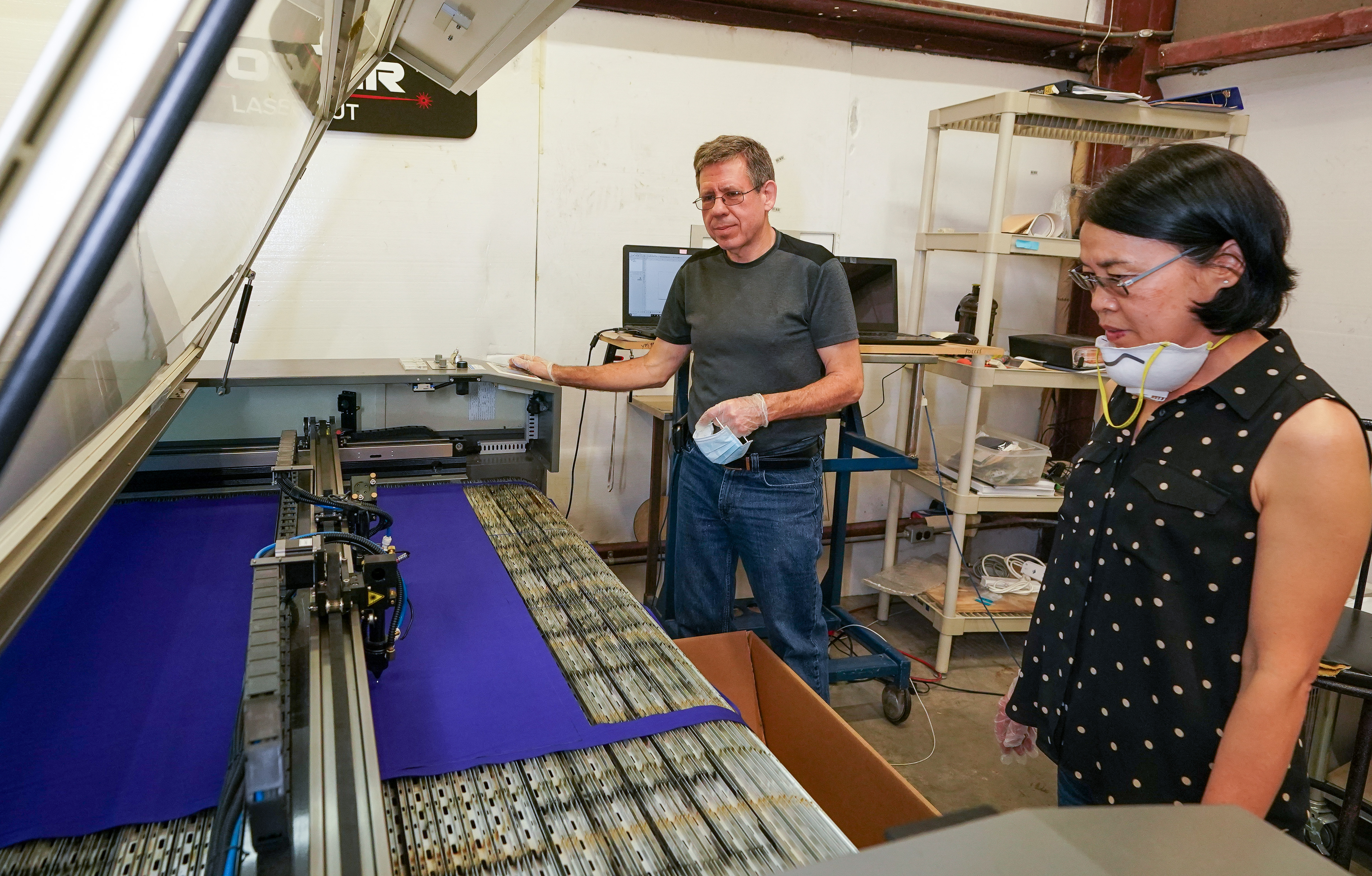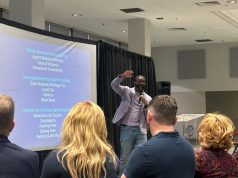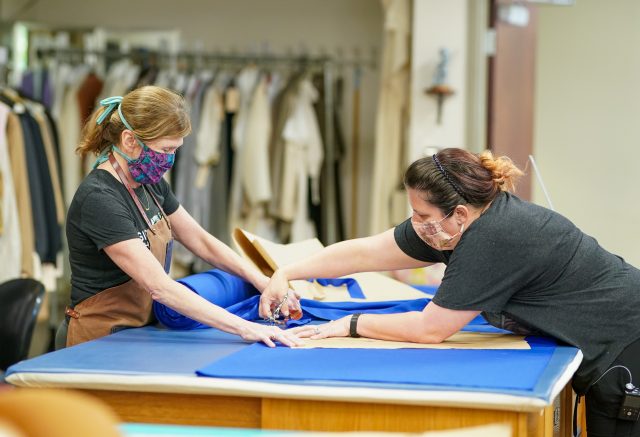
By Erica Wright
The Birmingham Times
Christine McLean, Fred Britt, and Dina Marble are all cut from the same cloth, which comes in handy when making face masks for health care workers and others on the front lines of the COVID-19 global pandemic.
McLean, along with Kathy Green, started Bham Face Masks last month—and the grassroots movement has now become the nonprofit Grassroots Initiative Team (GRIT), which has distributed more 40,000 face masks to doctor’s offices, hospitals, nursing homes, and homeless shelters since April.
“This is all being fueled by home seamstresses or sewers from all over the community who decided to pitch in to help,” McLean said. “This is a beautiful act of love.”
McLean, who owns The Red Pincushion, a sewing studio and workroom on Birmingham’s Southside that creates custom-made home décor, said it has been amazing to see so many people come together in such a short time.
“People from all different backgrounds, from different parts of the city [have come together] for one common purpose,” she said. “I think it’s been good for a lot of people because this is such an unsettling, uncertain time, so people have a purpose. They feel like they are part of a solution, like they have a sense of community. Especially when everybody is so isolated at home, this really helps them be part of something bigger.”
None of this would be possible without the more than 700 volunteers like Britt and Marble, McLean said.
How It Works
Britt, who owns Power Laser Cut in Birmingham along with his wife, Jennifer, has a laser machine that can cut up to 4,000 to 8,000 pieces of fabric a day.
“We cut military fabric for some organizations, so I contacted [McLean] and told her we do laser cutting on fabric and, because things are slow, we would do whatever she needs at cost because they are cutting [fabric] by hand. She’s been bringing us rolls of fabric, and we’re [laser] cutting them every day,” said Britt, adding that cutting on the laser machine is much easier.
“There is a lot of labor involved with manual cutting on machines because they have to stack the fabric versus laser cutting, where we can put on a roll and everything is automatic.”
Once the fabric has been laser cut, Britt and his wife box it for McLean to pick up. From there, it is ironed and folded before going to the volunteers who sew the masks together.
“On a good day, we can cut 4,800 pieces of fabric a day,” Britt said. “We cut them and put them in boxes of 280 per box, [McLean] takes them to get folded and ironed, and then [the fabric] goes to the sewing ladies.”
Once the masks are sewn, Marble handles the collection and distribution.
“There are people all over town filling individual orders. The bigger orders come to me, we come together to organize, and then [set up] in a location where the hospitals and clinics can come by every day of the week can pick up their orders,” she said; central locations include The Summit or Forest Park, places where volunteers who are sewing or cutting elastic can also pick up materials.
On average, Bham Face Masks distributes 10,000 to 11,000 each week, Marble said. Because of the group’s work making face masks, Jefferson County United Command wanted to offer a grant to make masks for them, but first the group had to set up a nonprofit—and that’s how GRIT was born.
Since setting up the nonprofit, the group has been able to obtain grants to make face masks for the county and others.
“We’ve got grants through the Community Foundation to help with the Jefferson County Unified Command COVID-19 Response Team and BhamStrong to make masks for the city of Birmingham,” McLean said.
Filling requests for masks is only a part of the Bham Face Masks mission, though.
“The bigger picture is that volunteers have a sense of purpose by [supporting frontline workers],” McLean said. “Making the masks shows the generosity, kindness, compassion, and empathy we all share in common by being human. We’re more the same than we are different, and this is just an example of that.”
To get more information about, donate to, or sign up as a volunteer with Bham Face Masks, visit www.bhamfacemasks.com or their Facebook page at Bham Face Masks.




